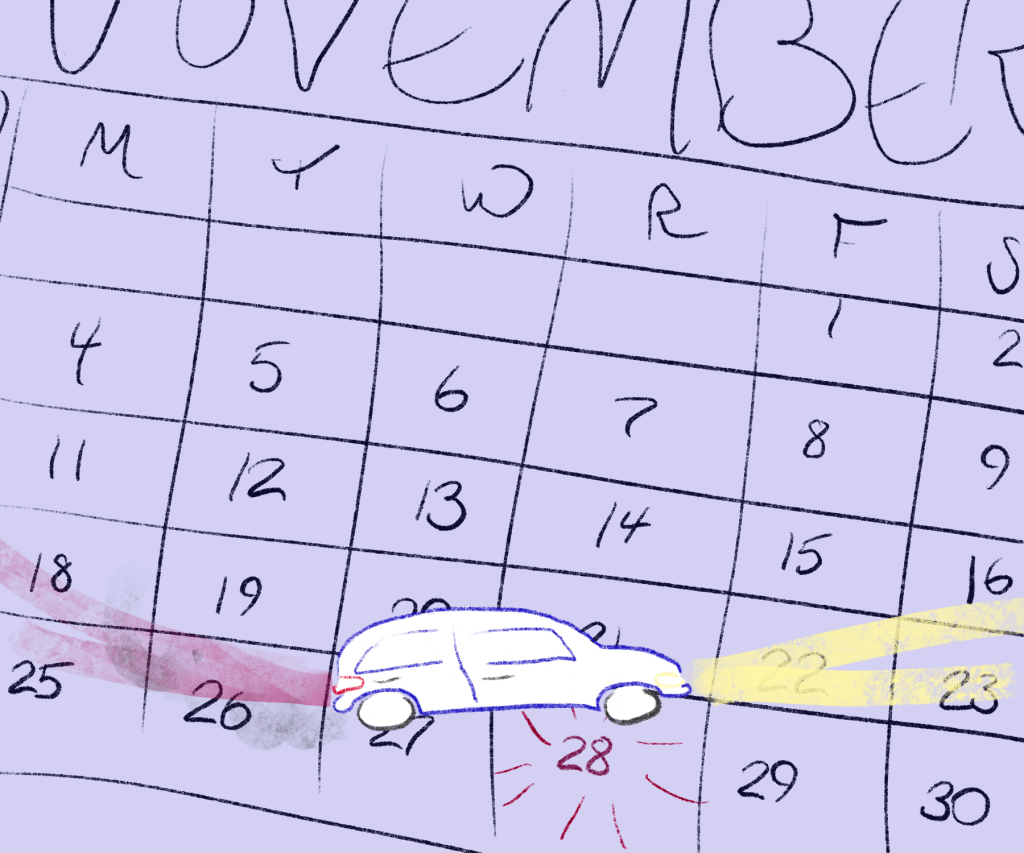Last week, the Student Association passed a resolution calling for Binghamton University to extend Thanksgiving break to allow students adequate time to travel home to their families.
Building an effective calendar requires consideration for more than just the holidays themselves. Students and faculty both need, and deserve, enough time to travel and enough time to celebrate the holidays. When the schedule fails to account for this, students and faculty are forced into situations where they might have to decide whether to travel during the holiday or risk academic consequences — something that could easily be avoided.
We didn’t have a fall break this year, and in times past, BU has closed the dorms in an attempt to prevent students from participating in Parade Day. This suggests that the school has considerable control over what days students have off, but that there was perhaps a lack of consideration for the logistics behind traveling home and then back to the Binghamton area. While the University’s policy is to maintain a 14-week schedule each semester, with each day of the week having 14 occurrences per semester, they still have control over when those days fall.
Thanksgiving is an important family holiday for many, but the current academic schedule will also likely impact the observance of religious holidays such as Easter, with students expected back in the classroom the Monday right after Easter Sunday. Be it for family or religion, many students and faculty who want to observe the holiday may be forced to sacrifice their time, potentially forgoing celebrating Easter at all. This issue occurred this semester with Rosh Hashana, which similarly forced students to pick between their faith and attending class. Although it’s great that BU recognizes its large Jewish population and gives time off for Jewish holidays, it’s made it difficult for them to be celebrated.
The issue extends to resident assistants (RAs), who are often required to stay longer and arrive earlier than their non-RA peers. After hearing student concerns about this year’s schedule, the University is attempting to mitigate this issue by reducing the number of Residential Life employees who have to return to BU early from 50 percent to 33 percent of its total staff. Although this is a step in the right direction, it still means that some students are stuck choosing between their families and their jobs. They take up a role that requires more from them than the average student, but there’s no reason that being an RA should mean they have to skip out on holidays.
Travel time isn’t the same for every student and faculty member, either. There’s a difference for people who have to travel an hour versus those who have to drive five, especially for those who need to go through different forms of transportation and those who live out of state. Having to return to campus the day after a holiday is certainly more feasible for those close to Binghamton, and near impossible for those many states away.
There’s also a discussion to be had on the lack of breaks BU students and faculty have had this semester. With little time to decompress, it’s been difficult for many to push through to the end of their courses. The start of the semester and the end of the semester is malleable, and it’s much more useful to students to get more breaks throughout the academic year than it is to have a long break without classes.
These problems have already been amended in the 2020-21 academic calendar, but that doesn’t fix the issue for this year. With Thanksgiving so close, the Editorial Board doesn’t expect the University to change its schedule now, but there’s still hope for later in the academic year. Easter is the next time in the academic schedule that poses this kind of conflict, and there’s still time for the University to give us one more day.



